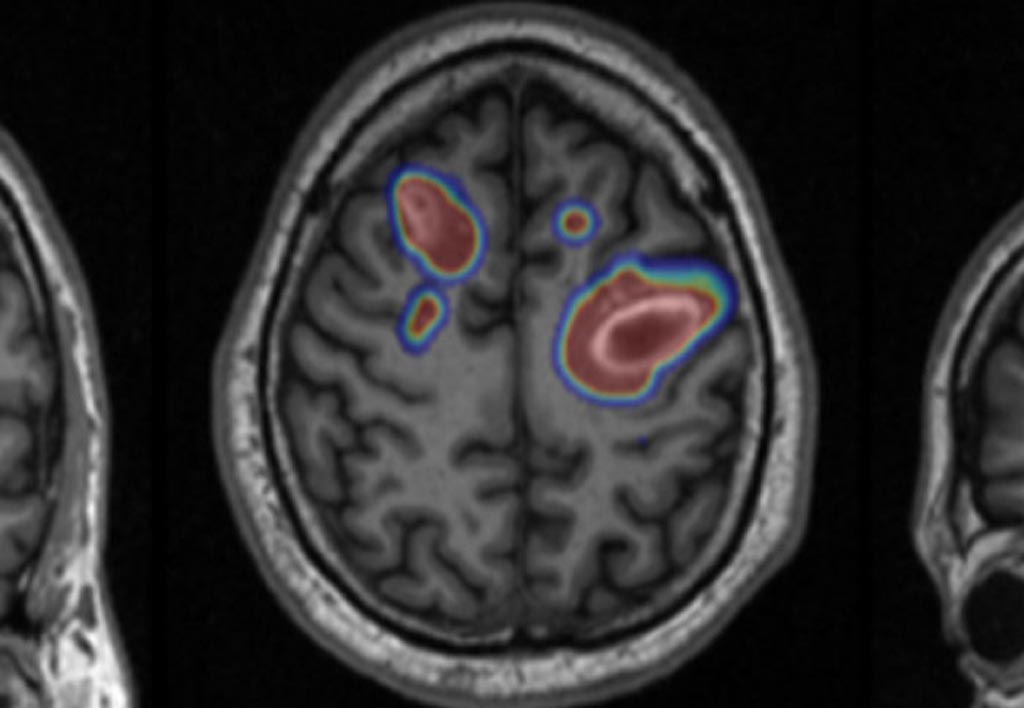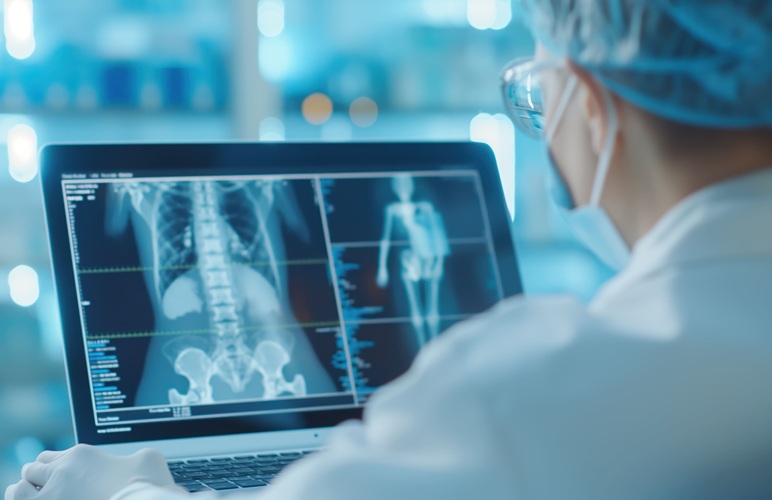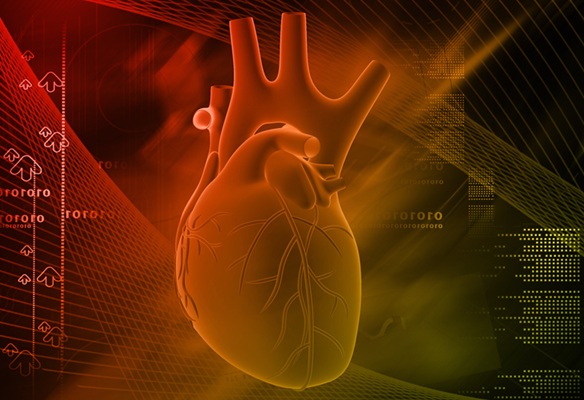UK to Set Up New GBP 10 Million Centre for Medical Imaging and AI
|
By MedImaging International staff writers Posted on 23 Nov 2018 |

Image: The new centre is intended to help clinicians speed up and improve diagnosis and care across a number of patient pathways, including dementia, heart failure and cancer (Photo courtesy of Imperial College London).
The UK’s London Medical Imaging & Artificial Intelligence Centre for Value-Based Healthcare will train sophisticated artificial intelligence (AI) algorithms from NHS medical images and patient data, to create tools that will help clinicians speed up and improve diagnosis and care across a number of patient pathways, including dementia, heart failure and cancer.
Awarded by UK Research and Innovation as part of the Industrial Strategy Challenge Fund, the centre is led by King's College London and brings together experts from Imperial College London (UK), Queen Mary’s University London (UK) and various healthcare partners.
The centre will focus on transformation and value-based healthcare, and how advanced imaging and AI technologies can be used to improve the patient journey - from earlier diagnosis if there is a problem and reassurance if not, to moving quickly to a treatment which is tailored to the patient and will result in the best possible outcome. By optimizing triage and targeting resources, these technologies will also allow the NHS to reduce wasted effort that is not supporting patient care, and deliver significant financial savings.
"AI has tremendous potential in radiology and medical imaging. The centre will take the lead in translating cutting edge AI research from the lab into the clinic while addressing challenges such as the verification of AI systems and ensuring their interpretability, which is vital for enabling safe deployment in the NHS," said Professor Daniel Rueckert, Head of Imperial's Department of Computing.
"The centre will provide a fantastic opportunity to transform 12 different patient pathways by using advanced imaging and AI and help make the products that will substantially improve the experience for our patients and their clinical outcomes. It will also allow us to better utilize the resources within the NHS," said Centre Director Professor Reza Razavi from King’s College London. "This builds on a great on-going partnership between our researchers, clinicians and industry colleagues that will help put the UK at the forefront of developing and applying new technologies to improve healthcare."
"Early diagnosis of illness can greatly increase the chances of successful treatment and save lives," said UK Research and Innovation Chief Executive Professor Sir Mark Walport. "The centers announced today bring together the teams that will develop artificial intelligence tools that can analyze medical images varying from X-rays to microscopic sections from tissue biopsies. AI has the potential to revolutionize the speed and accuracy of medical diagnosis."
Related Links:
Imperial College London
Queen Mary’s University London
Awarded by UK Research and Innovation as part of the Industrial Strategy Challenge Fund, the centre is led by King's College London and brings together experts from Imperial College London (UK), Queen Mary’s University London (UK) and various healthcare partners.
The centre will focus on transformation and value-based healthcare, and how advanced imaging and AI technologies can be used to improve the patient journey - from earlier diagnosis if there is a problem and reassurance if not, to moving quickly to a treatment which is tailored to the patient and will result in the best possible outcome. By optimizing triage and targeting resources, these technologies will also allow the NHS to reduce wasted effort that is not supporting patient care, and deliver significant financial savings.
"AI has tremendous potential in radiology and medical imaging. The centre will take the lead in translating cutting edge AI research from the lab into the clinic while addressing challenges such as the verification of AI systems and ensuring their interpretability, which is vital for enabling safe deployment in the NHS," said Professor Daniel Rueckert, Head of Imperial's Department of Computing.
"The centre will provide a fantastic opportunity to transform 12 different patient pathways by using advanced imaging and AI and help make the products that will substantially improve the experience for our patients and their clinical outcomes. It will also allow us to better utilize the resources within the NHS," said Centre Director Professor Reza Razavi from King’s College London. "This builds on a great on-going partnership between our researchers, clinicians and industry colleagues that will help put the UK at the forefront of developing and applying new technologies to improve healthcare."
"Early diagnosis of illness can greatly increase the chances of successful treatment and save lives," said UK Research and Innovation Chief Executive Professor Sir Mark Walport. "The centers announced today bring together the teams that will develop artificial intelligence tools that can analyze medical images varying from X-rays to microscopic sections from tissue biopsies. AI has the potential to revolutionize the speed and accuracy of medical diagnosis."
Related Links:
Imperial College London
Queen Mary’s University London
Latest Industry News News
- GE HealthCare and NVIDIA Collaboration to Reimagine Diagnostic Imaging
- Patient-Specific 3D-Printed Phantoms Transform CT Imaging
- Siemens and Sectra Collaborate on Enhancing Radiology Workflows
- Bracco Diagnostics and ColoWatch Partner to Expand Availability CRC Screening Tests Using Virtual Colonoscopy
- Mindray Partners with TeleRay to Streamline Ultrasound Delivery
- Philips and Medtronic Partner on Stroke Care
- Siemens and Medtronic Enter into Global Partnership for Advancing Spine Care Imaging Technologies
- RSNA 2024 Technical Exhibits to Showcase Latest Advances in Radiology
- Bracco Collaborates with Arrayus on Microbubble-Assisted Focused Ultrasound Therapy for Pancreatic Cancer
- Innovative Collaboration to Enhance Ischemic Stroke Detection and Elevate Standards in Diagnostic Imaging
- RSNA 2024 Registration Opens
- Microsoft collaborates with Leading Academic Medical Systems to Advance AI in Medical Imaging
- GE HealthCare Acquires Intelligent Ultrasound Group’s Clinical Artificial Intelligence Business
- Bayer and Rad AI Collaborate on Expanding Use of Cutting Edge AI Radiology Operational Solutions
- Polish Med-Tech Company BrainScan to Expand Extensively into Foreign Markets
- Hologic Acquires UK-Based Breast Surgical Guidance Company Endomagnetics Ltd.
Channels
Radiography
view channel
Machine Learning Algorithm Identifies Cardiovascular Risk from Routine Bone Density Scans
A new study published in the Journal of Bone and Mineral Research reveals that an automated machine learning program can predict the risk of cardiovascular events and falls or fractures by analyzing bone... Read more
AI Improves Early Detection of Interval Breast Cancers
Interval breast cancers, which occur between routine screenings, are easier to treat when detected earlier. Early detection can reduce the need for aggressive treatments and improve the chances of better outcomes.... Read more
World's Largest Class Single Crystal Diamond Radiation Detector Opens New Possibilities for Diagnostic Imaging
Diamonds possess ideal physical properties for radiation detection, such as exceptional thermal and chemical stability along with a quick response time. Made of carbon with an atomic number of six, diamonds... Read moreMRI
view channel
New MRI Technique Reveals Hidden Heart Issues
Traditional exercise stress tests conducted within an MRI machine require patients to lie flat, a position that artificially improves heart function by increasing stroke volume due to gravity-driven blood... Read more
Shorter MRI Exam Effectively Detects Cancer in Dense Breasts
Women with extremely dense breasts face a higher risk of missed breast cancer diagnoses, as dense glandular and fibrous tissue can obscure tumors on mammograms. While breast MRI is recommended for supplemental... Read moreUltrasound
view channel
New Incision-Free Technique Halts Growth of Debilitating Brain Lesions
Cerebral cavernous malformations (CCMs), also known as cavernomas, are abnormal clusters of blood vessels that can grow in the brain, spinal cord, or other parts of the body. While most cases remain asymptomatic,... Read more.jpeg)
AI-Powered Lung Ultrasound Outperforms Human Experts in Tuberculosis Diagnosis
Despite global declines in tuberculosis (TB) rates in previous years, the incidence of TB rose by 4.6% from 2020 to 2023. Early screening and rapid diagnosis are essential elements of the World Health... Read moreNuclear Medicine
view channel
New Imaging Approach Could Reduce Need for Biopsies to Monitor Prostate Cancer
Prostate cancer is the second leading cause of cancer-related death among men in the United States. However, the majority of older men diagnosed with prostate cancer have slow-growing, low-risk forms of... Read more
Novel Radiolabeled Antibody Improves Diagnosis and Treatment of Solid Tumors
Interleukin-13 receptor α-2 (IL13Rα2) is a cell surface receptor commonly found in solid tumors such as glioblastoma, melanoma, and breast cancer. It is minimally expressed in normal tissues, making it... Read moreGeneral/Advanced Imaging
view channel
First-Of-Its-Kind Wearable Device Offers Revolutionary Alternative to CT Scans
Currently, patients with conditions such as heart failure, pneumonia, or respiratory distress often require multiple imaging procedures that are intermittent, disruptive, and involve high levels of radiation.... Read more
AI-Based CT Scan Analysis Predicts Early-Stage Kidney Damage Due to Cancer Treatments
Radioligand therapy, a form of targeted nuclear medicine, has recently gained attention for its potential in treating specific types of tumors. However, one of the potential side effects of this therapy... Read moreImaging IT
view channel
New Google Cloud Medical Imaging Suite Makes Imaging Healthcare Data More Accessible
Medical imaging is a critical tool used to diagnose patients, and there are billions of medical images scanned globally each year. Imaging data accounts for about 90% of all healthcare data1 and, until... Read more






















